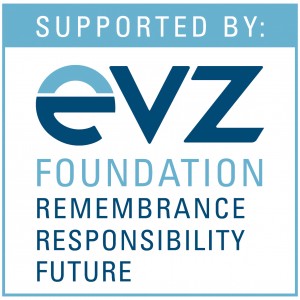On July 27th, 2017 the National LGBT* Rights Organization LGL and the Human Rights Monitoring Institute (HRMI) informed the Committee of Ministers of the Council of Europe about the process of executing the judgement in the case L. v. Lithuania by the European Court of Human Rights (ECtHR) at the national level. The civil society organizations’ have commended the Government’s efforts in introducing comprehensive procedures for legal gender recognition and medical gender reassignment with the view of addressing the continuing systematic violations of transgender human rights in Lithuania. Nevertheless, LGL and HRMI are of the position that close supervision by the Council of Europe’s institutions shall prevail until the legislative and policy measures are fully in place.
In their briefing, the civil society organizations acknowledge that in the period of March-June, 2017 the Lithuanian authorities, namely – the Ministry of Justice, the Ministry of Health and the Office of the Equal Opportunities Ombudsperson, have been taking concrete steps with the view of eliminating the continuing systematic violation of the right to respect of private life under the European Convention on Human Rights (ECtHR) for transgender individuals in Lithuania. Furthermore, in two ground-breaking decisions of 7 April 2017 and of 2 May 2017 the Vilnius City District Court addressed the legal gap on gender reassignment by granting legal gender recognition for two transgender men without the requirement for the irreversible gender reassignment surgery. Taken into account that the above mentioned judgments by the first instance domestic court were not appealed by the competent national authorities, it can be concluded that the State institutions have expressed their implicit agreement with the material conditions for legal gender recognition established by the domestic jurisprudence.
Nevertheless, the satisfactory execution of the L. v. Lithuania judgment requires the establishment of the corresponding administrative procedure for legal gender recognition, which would enable transgender individuals to change their identity documents in a quick, accessible and transparent manner without the necessity of applying before the national courts. The civil society organizations welcome the Government’s efforts to establish such procedure and invite the Lithuanian authorities to strictly follow the legal standards established by the domestic courts throughout the legislative process.
In the course of their submission, the civil society organization LGL and HRMI discussed the following issues:
- developments of the domestic case law on granting legal gender recognition without the requirement for the irreversible gender reassignment surgery and its implications to the legislative process;
- current legislative process and the proposed short-term and long-term strategies with the view of establishing gender reassignment procedure in Lithuania;
- necessity for continuing the enhanced supervision by the Committee of Ministers until the separate Law on Recognition of Gender Identity have been adopted and the rights in question are fully accessible for transgender individuals in Lithuania.
Within the framework of the current submission to the Committee of Ministers, the civil society organizations noted that human rights of transgender persons should not be considered as a “question of sensitive nature”. LGL and HRMI are extremely hopeful in witnessing positive improvements regarding the status of transgender persons in the Lithuanian society. They hope that the spirit of cooperation and inclusion will continue to guide the remaining process of executing the L. v. Lithuania judgment at the national level. The process has been long and daunting, but the light is already visible at the end of the tunnel.
The full briefing submitted under the Rule 9.2 of the Rules of the Committee of Ministers for supervising execution of the ECtHR judgments can be found here:
A comprehensive article by the European Implementation Network on the impact of the European Convention in promoting transgender human rights in Lithuania can be found here.
The work of the National LGBT* Rights Organization LGL in protecting the rights of transgender people is supported by international partners – TGEU (Transgender Europe) and Stiftung EVZ (Germany).





